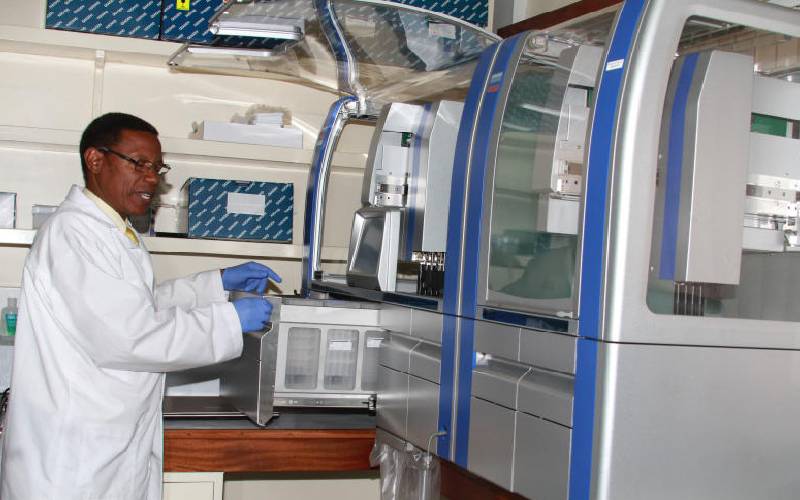×
The Standard e-Paper
Fearless, Trusted News

A Medical Laboratory Technologist demonstrates how Qiasympony machine used to screen cervical and breast cancer works. [File, Standard]
Conventionally, a doctor may do a physical examination to feel areas of your body for lumps that may indicate a tumour. Abnormalities in different parts of the body may indicate the presence of cancer.